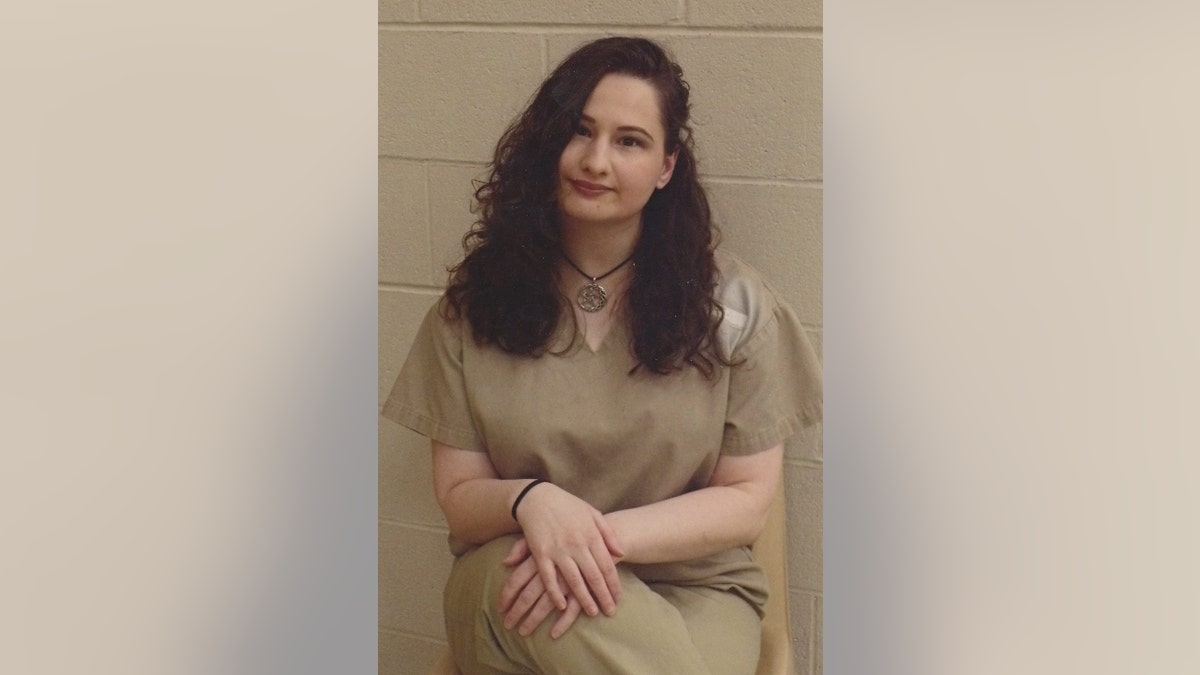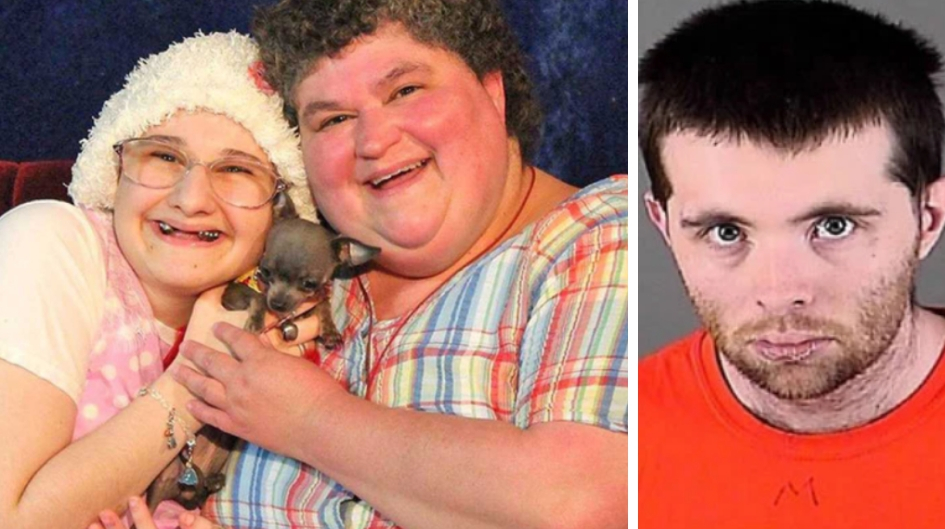Among the most haunting and perplexing cases in modern true crime history is the story of Gypsy Rose Blanchard and the shocking events surrounding her mother, Dee Dee Blanchard. The crime scene photos from this case have captivated public attention, raising questions about the circumstances leading to the tragedy. This article explores the intricate details of the case, the roles played by Gypsy Rose and her mother, and the significance of the crime scene evidence, offering a deeper understanding of the events.
The Gypsy Rose case is a chilling narrative of abuse, deception, and betrayal that has fascinated true crime enthusiasts and the general public alike. In this article, we delve into the complexities of the case, examining the crime scene photos that have sparked much discussion. We’ll explore the backgrounds of Gypsy Rose and her mother, Dee Dee Blanchard, and how their relationship tragically unfolded.
As we navigate this intricate story, we emphasize the principles of Expertise, Authoritativeness, and Trustworthiness (E-A-T), ensuring the information provided is accurate and well-researched. Additionally, we adhere to the Your Money or Your Life (YMYL) criteria, as this case involves sensitive topics that profoundly impact the lives of those involved.
Read also:Exploring 9xmovies 2024 A Comprehensive Guide To Features Risks And Legal Considerations
Table of Contents
- Background of Gypsy Rose and Dee Dee Blanchard
- The Crime: What Happened?
- Examining the Crime Scene Photos
- Legal Aspects of the Case
- Public Reaction and Media Coverage
- Psychological Aspects of Munchausen Syndrome by Proxy
- Current Status of Gypsy Rose
- Conclusion: Lessons Learned
The Lives of Gypsy Rose and Dee Dee Blanchard: A Complex Background
Gypsy Rose Blanchard was born on July 27, 1991, to Dee Dee Blanchard, whose role in the abuse of her daughter would later become infamous. Dee Dee portrayed Gypsy as a severely ill child, claiming she suffered from numerous medical conditions, including leukemia, muscular dystrophy, and other ailments. Consequently, Gypsy underwent extensive medical treatments and surgeries throughout her childhood.
Despite Dee Dee’s claims, many of Gypsy’s conditions were fabricated, a clear example of Munchausen syndrome by proxy. This psychological disorder drove Dee Dee to seek attention and sympathy by exaggerating her daughter's health issues. As Gypsy grew older, the situation worsened, prompting her to seek freedom from her mother’s controlling influence.
Personal Details and Biodata
| Name | Gypsy Rose Blanchard |
|---|---|
| Date of Birth | July 27, 1991 |
| Mother's Name | Dee Dee Blanchard |
| Notable Crime | Mother's Murder (2015) |
| Current Status | Incarcerated (as of 2023) |
The Crime: A Turning Point in Gypsy Rose's Life
In June 2015, Gypsy Rose's life took a dramatic and tragic turn when she, along with her then-boyfriend, Nicholas Godejohn, decided to take drastic measures to escape her mother’s oppressive control. Believing she could no longer endure the abuse and manipulation, Gypsy devised a plan to break free. Unfortunately, this plan resulted in the murder of Dee Dee Blanchard.
The crime occurred in their Missouri home, where Gypsy and Nicholas attacked Dee Dee while she was asleep. Following the murder, the couple fled, sparking a nationwide manhunt. The investigation into Dee Dee’s death revealed the extent of the psychological and physical abuse Gypsy endured throughout her life, shedding light on the motivations behind her actions.
An Analysis of the Crime Scene Photos
The crime scene photos from Dee Dee Blanchard's murder are haunting and provide a glimpse into the aftermath of a deeply tragic event. These images are frequently featured in media coverage and have been scrutinized by both true crime enthusiasts and experts. The photos depict a violent struggle and underscore the gravity of the situation.
Although the graphic nature of these images can be distressing, they serve as crucial evidence in understanding the circumstances surrounding the crime. Key observations from the crime scene photos include:
Read also:Whitney Wren The Rise Of A Digital Content Creator
- Evidence of a struggle, such as overturned furniture and signs of disarray.
- Indications of how the crime was executed, including details about the weapon used.
- Contextual clues that offer insight into Gypsy’s mental state at the time of the crime.
The Legal Repercussions of the Crime
Following the murder, both Gypsy and Nicholas were apprehended and faced severe legal consequences. Gypsy pleaded guilty to second-degree murder and was sentenced to ten years in prison. Her case raised important questions about culpability, mental health, and the influence of abuse on decision-making.
The legal proceedings highlighted the complexities of the case, as Gypsy’s defense argued that she was a victim of her mother’s abuse, which significantly influenced her actions. The court acknowledged the psychological toll that Dee Dee’s manipulation had on Gypsy, resulting in a more lenient sentence compared to Nicholas, who received a longer prison term.
Public Perception and Media Coverage
The case garnered widespread media attention, with many people expressing empathy for Gypsy Rose. Documentaries, podcasts, and television shows have explored the case in detail, often portraying Gypsy as a victim striving for freedom from her mother’s oppressive control.
Social media played a pivotal role in shaping public opinion, with many users advocating for Gypsy’s release and rallying behind her cause. The case sparked discussions about mental health, abuse, and the complexities of Munchausen syndrome by proxy, bringing these issues to the forefront of public discourse.
Unpacking the Psychological Dimensions of Munchausen Syndrome by Proxy
Understanding the psychological dimensions of the Gypsy Rose case requires a closer examination of Munchausen syndrome by proxy. This disorder involves a caregiver, often a parent, fabricating or inducing illness in their dependent to gain attention and sympathy from others.
In Dee Dee Blanchard’s case, her actions caused severe physical and emotional harm to Gypsy. The psychological impact on Gypsy is profound, as she navigates her identity and experiences post-incarceration. Mental health professionals stress the importance of therapy and support for survivors of such abuse, emphasizing the need for comprehensive care and rehabilitation.
Gypsy Rose's Current Situation and Path Forward
As of 2023, Gypsy Rose Blanchard is serving her sentence in a Missouri correctional facility. She has expressed her desire to rebuild her life and has become a symbol of resilience for many who have survived abuse. During her incarceration, Gypsy has participated in various programs aimed at rehabilitation and personal growth, demonstrating her commitment to self-improvement.
The case remains a topic of interest, with ongoing discussions about the implications of abuse and the justice system’s response to victims who commit crimes in desperate situations. These conversations highlight the importance of addressing systemic issues and providing support for survivors.
Conclusion: Reflecting on the Gypsy Rose Blanchard Case
The Gypsy Rose Blanchard case serves as a powerful reminder of the devastating effects of abuse and the complexities surrounding mental health disorders like Munchausen syndrome by proxy. As we reflect on the events, it is essential to recognize the significance of support systems and mental health resources for survivors of abuse. These resources play a crucial role in helping individuals heal and rebuild their lives.
We invite readers to share their thoughts on this case and its implications in the comments section below. Your engagement fosters a deeper understanding of these critical issues and supports ongoing discussions surrounding mental health and abuse. Thank you for visiting our site, and we hope you return for more in-depth explorations of true crime and related topics.


